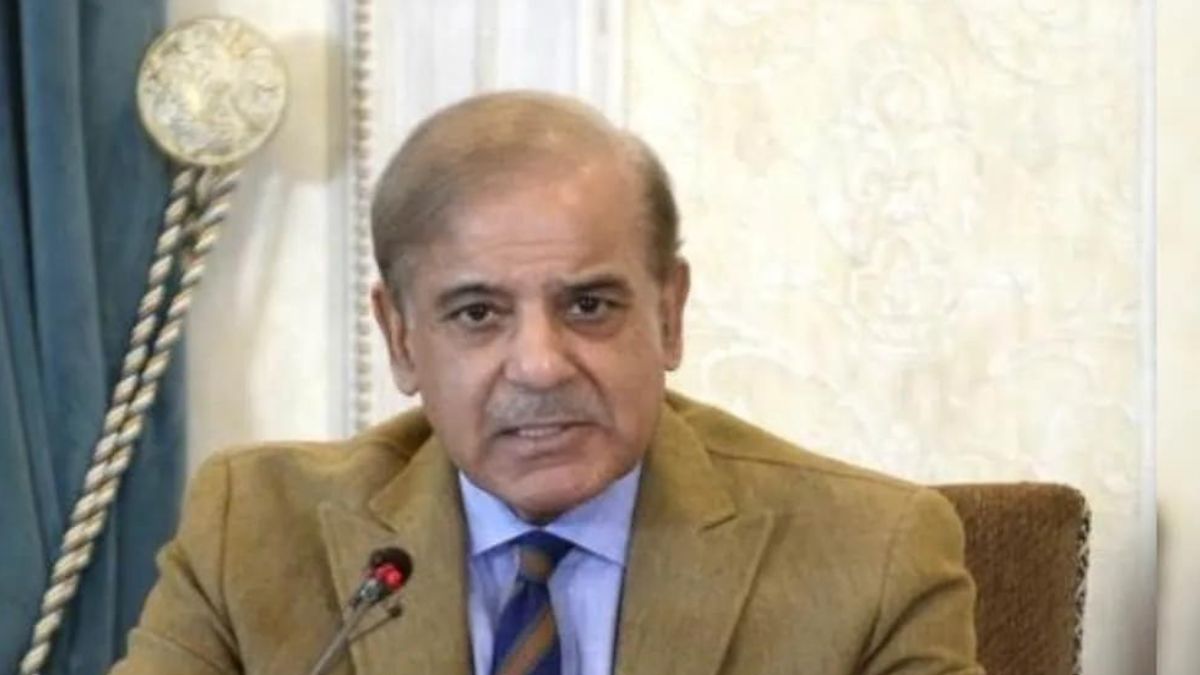It’s not an itch that Lacto Calamine lotion can soothe or an allergy that Cetirizine can calm. As Pakistan rolls out the red carpet for the SCO Summit 2024, with Chinese Premier Li Qiang on a four-day visit, the urge of Prime Minister Shehbaz Sharif and his cohorts to hammer on Kashmir will be irrepressible, especially in front of visiting Indian External Affairs Minister S Jaishankar.
Mentioning Kashmir serves a dual purpose: it appeases domestic audiences while pleasing Pakistan’s “iron brother,” China. This is not just diplomacy alone aorks, it’s political theatre. However, one must wonder if Shehbaz is seeking to emulate his elder brother, Nawaz Sharif, who tarnished his reputation by igniting the Kargil conflict shortly after the Lahore Declaration. It’s easy to point fingers at former military ruler General Pervez Musharraf, but Nawaz was prime minister back then. Was he merely a puppet, or was he complicit?
Expecting Shehbaz to work wonders might be too ambitious. However, the least he could do is refrain from exploiting the Kashmir issue for political gain. At a minimum, he could silence the Kashmir refrain to avoid appearing as a pawn in this geopolitical game. Will he rise to the occasion, or will he remain a mere puppet of Chinese interests, dancing to their tune while garnering fleeting applause through his anti-India rhetoric? Whether he becomes a dignified statesman or stays a “Chinese noodle” is entirely up to him.
So far, his record is unimpressive. He is just another Sharif that India understandably distrusts. Since Shehbaz assumed office as Pakistan’s prime minister in March 2024, anti-India rhetoric has continued to be a key feature of Pakistan’s political discourse, particularly concerning Kashmir. This rhetoric aligns with Pakistan’s historical stance, aiming to portray India’s policies as aggressive while gathering both domestic and international support.
Shehbaz Sharif’s anti-India remarks
Shehbaz has consistently leveraged international platforms to voice anti-India sentiments. During his address at the United Nations General Assembly (UNGA) in September, in an effort to draw parallels with other high-profile global conflicts, Sharif compared Kashmir to Palestine, reinforcing the narrative that the region is “illegally occupied” by India. Yet, this is typical of Pakistan and its prime minister.
Impact Shorts
More ShortsHe went so far as to falsely accuse India of human rights violations against Kashmiris, condemning India’s revocation of Article 370, the constitutional provision that granted special status to Jammu and Kashmir. Shehbaz insisted that India must reverse this decision as a prerequisite for peace, reiterating Pakistan’s stance that Kashmir is a disputed territory whose future should be determined by a plebiscite in accordance with UN resolutions. Additionally, he criticised India’s domestic policies regarding its Muslim minority, labelling them as part of a “Hindu supremacist agenda.” Did he even reflect on his own words?
Bilawal Bhutto Zardari’s statements
Former foreign minister Bilawal Bhutto Zardari was another vocal critic of India during his tenure. He made numerous derogatory remarks aimed at Prime Minister Narendra Modi, notably in December 2022, when he called Modi the “butcher of Gujarat,” a reference to the 2002 Gujarat riots. This comment drew heavy condemnation from India, escalating diplomatic tensions. Zardari consistently raised the Kashmir issue on international platforms such as the SCO, portraying Pakistan as a staunch defender of Kashmiri rights. At the SCO Summit in Goa in May 2023, he made it clear that Pakistan would not back down on its demand for Kashmir’s “liberation” from India, despite avoiding bilateral meetings with Indian officials.
Other Pakistani politicians’ anti-India stances
In addition to Sharif and Zardari, other Pakistani ministers have continued to make hostile statements against India. For instance, Information Minister Marriyum Aurangzeb unleashed vitriol against India on Kashmir. The consistent messaging from various Pakistani leaders emphasise that Kashmir continues to be Pakistan’s favourite anti-India topic. These statements are often amplified during key anniversaries such as Pakistan’s annual observance of Kashmir Solidarity Day and the anniversaries of India’s revocation of Article 370.
Domestic and international implications
The consistent anti-India rhetoric from Pakistan serves both domestic and international purposes. Domestically, it rallies support from political factions favouring a hardline stance on Kashmir. Internationally, Pakistan uses these statements to seek diplomatic support, particularly from Muslim-majority countries and organisations like the Organisation of Islamic Cooperation. Sharif and other leaders have called for international intervention, pushing for Kashmir to remain a focal point in Pakistan’s foreign policy agenda.
However, these statements have exacerbated diplomatic tensions between India and Pakistan. India has categorically rejected Pakistan’s claims over Kashmir, labelling them as interference in India’s internal affairs. This hostile environment has continued to hinder any possibility of dialogue between the two nuclear-armed neighbours, with India maintaining that Pakistan must first take meaningful action against cross-border terrorism before any talks can resume.
Deepening or worsening ties?
Since Shehbaz Sharif’s tenure began, anti-India rhetoric has remained a key element of Pakistan’s political narrative, particularly focused on Kashmir. Speeches by Sharif, Bilawal Bhutto Zardari and others ministers demonstrate Pakistan’s intention to keep Kashmir at the forefront of its diplomatic agenda. However, this stance has led to increased tensions with India, contributing to the ongoing deadlock in relations between the two countries. As long as Pakistan is charmed by Kashmir, such venomous rhetoric is likely to persist, continuing to shape the complex dynamics of India-Pakistan relations.


)

)
)
)
)
)
)
)
)



